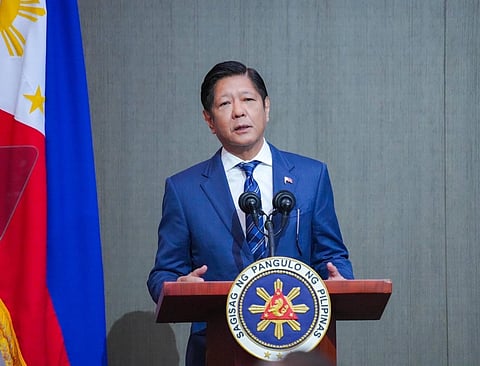
- NEWS
- the EDIT
- COMMENTARY
- BUSINESS
- LIFE
- SHOW
- ACTION
- GLOBAL GOALS
- SNAPS
- DYARYO TIRADA
- MORE

The “no permit, no exam” is now a legislated policy after President Ferdinand R. Marcos Jr. signed into law a measure allowing disadvantaged students to take scheduled periodic and final examinations despite unsettled financial obligations.
In a statement on Saturday, Presidential Communication Secretary Cheloy Garafil said Marcos signed Republic Act (RA) 11984, or the “No Permit, No Exam” Prohibition Act on 11 March.
RA 11984 covers all public and private basic education (K to 12) institutions, higher education institutions, and technical-vocational institutions (TVIs) nationwide.
“Students with unpaid tuition and other school fees could now take periodic and final examinations, following President Ferdinand R. Marcos Jr.’s signing of Republic Act 11984,” Garafil told reporters.
All covered public and private educational institutions found guilty of violating RA 11984 will face administrative sanctions that may be imposed by the Department of Education (DepEd), the Commission on Higher Education (CHED), and the Technical Education and Skills Development Authority (TESDA).
RA 11984 mandates all public and private educational institutions to accommodate and allow disadvantaged students with unpaid tuition and other school fees “to take the periodic and final exams without requiring a permit.”
The new law's mandate shall cover the entire school year for K to 12 students.
Gafil said the RA 11984 should be implemented without prejudice to the right and power of the educational institutions to require the submission of a promissory note, withhold the records and credentials of students, and such other legal and administrative remedies available to them for the collection of unpaid fees.
Under the new policy, the Department of Social Welfare and Development (DSWD) is mandated to issue the necessary certificate on the disadvantaged status of the student due to calamities, emergencies, force majeure (uncontrollable events), and other good or justifiable reasons.
The DSWD, in consultation with all relevant stakeholders, shall likewise promulgate the rules and regulations (IRR) defining “Disadvantaged Student.”
It must also set the criteria and requirements for the effectivity of the issuance of necessary certifications by different entities involved to effectively carry out the law.
The issuance of certificates by the municipal, city, and provincial social welfare and development officer, or the regional office of the DSWD should be in accordance with the law’s IRR.
Malacañang is yet to release a signed copy of RA 11984.
